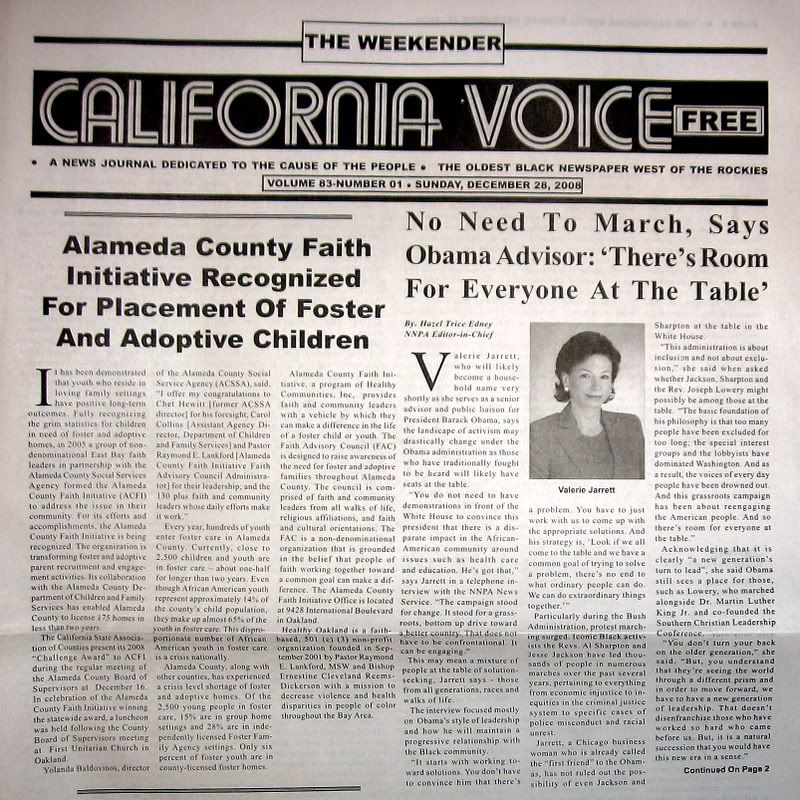There are two kinds of seats at President-elect Obama’s table: one for the rich, another for the common people.
First, the rich. As of Jan. 6, 2009, Obama’s Presidential Inaugural Committee had solicited and received more than $27 million, not even counting contributions of less than $200. Nearly $18 million comes from fewer than 400 persons donating the maximum of $50,000.
Bill and Melinda Gates, the head of Bill’s Microsoft corporation and his wife, all gave the maximum. That should give them access to the Obama administration, a nice seat at the table. Others who tossed in $50,000 are executives of ExxonMobil, Sony BMG Music, military contractor mogul Henry Crown, Fletcher Asset Management, Stephen Spielberg’s DreamWorks, Coca Cola, the Royal Bank of Canada, and a bunch of corporate law firms.
There’s a different message for the common people, who obviously cannot afford huge donations for the inaugural party.
“No Need to March, Says Obama Advisor, ‘There’s Room for Everyone at the Table’.” That’s the headline on a report by Hazel Trice Edney, editor in chief of the National Newspaper Publishers Association press syndicate. She begins:
Valerie Jarrett, who will likely become a household name [as number three or so in the Obama White House] . . . says the landscape of activism may drastically change under the Obama administration as those who have traditionally fought to be heard will likely have seats at the table.
“You do not need to have demonstrations in front of the White House to convince this president that there is a disparate impact in the African-American community around issues such as health care and education. He’s got that,” says Jarrrett in a telephone interview. . . .
 The California Voice, which bills itself as “The Oldest Black Newspaper West of the Rockies,” gave the story top billing on the front page of its Dec. 28, 2008 issue. You voted, sisters and brothers, now let your leaders wait for their White House invitations!
The California Voice, which bills itself as “The Oldest Black Newspaper West of the Rockies,” gave the story top billing on the front page of its Dec. 28, 2008 issue. You voted, sisters and brothers, now let your leaders wait for their White House invitations!
Jarrett continues, “And his [Obama’s] strategy is, ‘Look if we all come to the table and have a common goal of trying to solve a problem, there’s no end to what ordinary people can do.'” When it comes to guaranteeing universal health care, ordinary people want equal care for all, for example through expansion of Medicare to everyone. That’s not in Obama’s sights, especially while his administration talks to the un-ordinary inauguration donors from UnitedHealth insurance (over $75,000), WellPoint private health plans, Cedars Sinai, Kindred Healthcare, and so on.
Since the November election “progressives for Obama” have paid formal courtesy to the need to organize grassroots action that will oppose sending more troops to Afghanistan, demand economic relief for the common people not the rich, and oppose Israeli oppression of Palestinians. Now the task is complicated. These progressives have a choice. They can go along with Obama’s request not to pressure him while he grants access to those who paid big bucks. Or they can support action on the ground without cultivating further illusions in a loyal servant of capitalism.
Charles Andrews is the author of From Capitalism to Equality.
